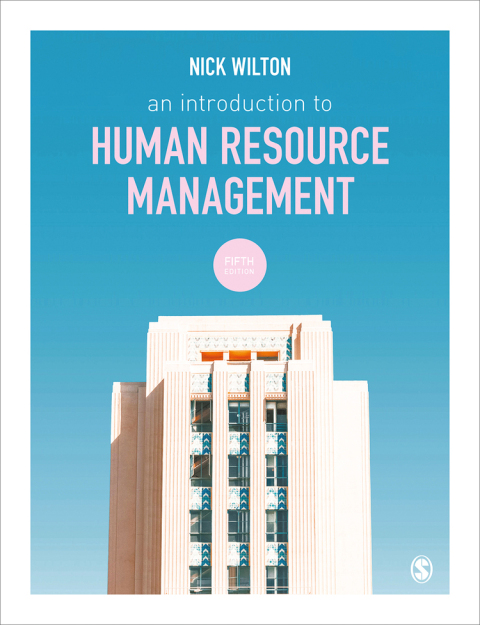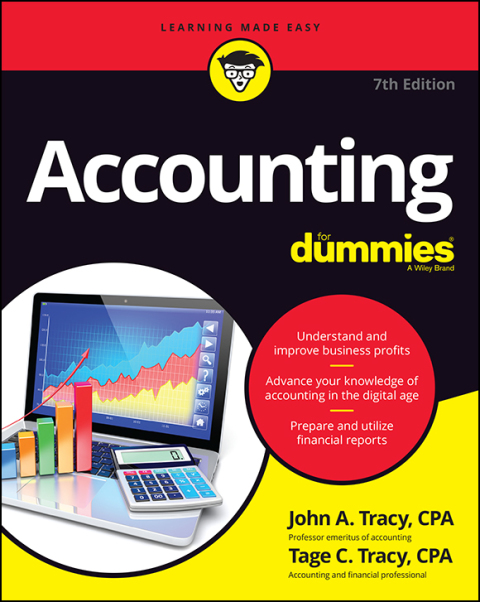Description
Efnisyfirlit
- Ttile Page
- Copyright Page
- Brief Contents
- Contents
- Preface
- Acknowledgments
- About the Authors
- Part 1 Foundation Concepts
- 1 Introduction: What Is International Business?
- China Globalizes London’s Black Cabs
- What Are the Key Concepts in International Business?
- The Nature of International Trade
- The Nature of International Investment
- Services as Well as Products
- The International Financial Services Sector
- How Does International Business Differ from Domestic Business?
- The Four Risks in Internationalization
- Who Participates in International Business?
- Focal Firms in International Business
- Small and Medium-sized Enterprises
- Born Global Firms
- Governments and Nongovernmental Organizations
- Why Do Firms Internationalize?
- Why Study International Business?
- Facilitator of the Global Economy and Interconnectedness
- Contributor to National Economic Well-being
- A Competitive Advantage for the Firm
- You Can Do It | Recent Grad in IB: Mary Lyles
- A Competitive Advantage for You
- An Opportunity to Support Ethics, Sustainability, and Corporate Citizenship
- CKR Career Preparation Kit: Tangible Process Tools and Travel Abroad Preparation Checklist
- Closing Case: Internationalization at Vodafone
- End-of-Chapter Review: Key Terms
- Summary
- Test Your Comprehension
- Apply Your Understanding
- globalEDGE™ Internet Exercises
- Endnotes
- 2 Globalization of Markets and the Internationalization of the Firm
- Skype: A “born Global” Business
- Phases of Globalization
- Market Globalization: Organizing Framework
- Driving Forces of Globalization
- Technological Advances and Globalization
- Information Technology
- Digitalization
- Communications
- Manufacturing
- Transportation
- Dimensions of Market Globalization
- Firm-Level Consequences of Market Globalization: Internationalization of the Firm’s Value Chain
- You Can Do It | Recent Grad in IB: Terrance Rogers
- Societal Consequences of Globalization
- Contagion: Rapid Spread of Monetary and Financial Crises
- Loss of National Sovereignty
- Offshoring
- Reshoring
- Effect on the Poor
- Effect on Sustainability and the Natural Environment
- Effect on National Culture
- Globalization and Africa
- Closing Case: A Debate on the Good and Harm of Globalization
- End-of-Chapter Review: Key Terms
- Summary
- Test Your Comprehension
- Apply Your Understanding
- globalEDGE™ Internet Exercises
- Endnotes
- Part 2 The Environment of International Business
- 3 The Cultural Environment of International Business
- Hallyu and the Rising Influence of the Korean Global Culture
- Culture and Cross-Cultural Risk
- What Culture Is Not
- Socialization and Acculturation
- Dimensions of Culture
- Values and Attitudes
- Manners and Customs
- Perceptions of Time
- Perceptions of Space
- Symbolic Productions
- Material Productions and Creative Expressions
- Education
- Social Structure
- Role of Language and Religion in Culture
- Verbal Language
- Nonverbal Communication
- Religion
- Culture’s Effect in International Business
- Models and Explanations of Culture
- Cultural Metaphors
- High-and Low-Context Cultures
- Hofstede’s Research on National Culture
- Deal Versus Relationship Orientation
- Managerial Implications of Culture
- Cultural Orientations
- How to Acquire Cross-Cultural Competence
- Closing Case: Hollywood Movies and Global Culture
- End-of-Chapter Review: Key Terms
- Summary
- Test Your Comprehension
- Apply Your Understanding
- globalEDGE™ Internet Exercises
- Endnotes
- 4 Ethics, Corporate Social Responsibility, Sustainability, and Governance in International Business
- Improving the Lives of Bangladeshi Garments Factory Workers
- Ethical Behavior and Its Importance in International Business
- Components of Ethical Behavior
- Value of Ethical Behavior
- Unethical Behavior
- Ethical Standards and Dilemmas Around the World
- Relativism and Normativism
- Ethical Challenges in International Business
- Corruption
- Bribery
- Harmful Work Environment
- Unethical Business Practices
- Harmful Global Sourcing
- Illicit Products and Marketing
- Intellectual Property Infringement
- Corporate Social Responsibility
- Settings of Corporate Social Responsibility
- Successes and Failures of CSR
- Sustainability
- Company Role in Sustainability
- The Role of Corporate Governance
- Embracing Ethical Behavior
- Ethical Standard Approaches for Corporate Governance
- A Global Consensus
- Going Deep, Wide, and Local
- Benefits of Corporate Governance
- You Can Do It | Recent Grad in IB: Javier Estrada
- A Framework Tool for Making Ethical Decisions
- Closing Case: Scandal at Volkswagen
- End-of-Chapter Review: Key Terms
- Summary
- Test Your Comprehension
- Apply Your Understanding
- globalEDGE™ Internet Exercises
- Endnotes
- 5 Theories of International Trade and Investment
- Apple’s Advantages in Global Competition
- Why Do Nations Trade?
- Classical Theories
- How Can Nations Enhance Their Competitive Advantage?
- The Competitive Advantage of Nations
- Determinants of National Competitiveness
- National Industrial Policy
- National Industrial Policy in Practice
- Why and How Do Firms Internationalize?
- Internationalization Process of the Firm
- Born Global Firms
- How Can Internationalizing Firms Gain and Sustain Competitive Advantage?
- FDI-Based Explanations
- Dunning’s Eclectic Paradigm
- Non-FDI-Based Explanations
- Closing Case: Unilever’s Comparative and Competitive Advantages
- End-of-Chapter Review: Key Terms
- Summary
- Test Your Comprehension
- Apply Your Understanding
- globalEDGE™ Internet Exercises
- Endnotes
- 6 Political and Legal Systems in National Environments
- Galileo: Regional Disintegration and Its Consequences
- How Prevalent Is Country Risk?
- Political and Legal Environments in International Business
- Political Systems
- Authoritarianism
- Socialism
- Democracy
- National Governance and Economic Prosperity
- The Relationship Between Political Systems and Economic Systems
- Legal Systems
- Common Law
- Civil Law
- Religious Law
- Mixed Systems
- Participants in Political and Legal Systems
- Government
- International Organizations
- Regional Trade Organizations
- Special Interest Groups
- Competing Firms
- Types of Country Risk Produced by Political Systems
- Government Takeover of Corporate Assets
- Embargoes and Sanctions
- Boycotts Against Firms or Nations
- Terrorism
- War, Insurrection, and Violence
- Types of Country Risk Produced by Legal Systems
- Country Risk Arising from the Host-country Legal Environment
- Country Risk Arising from the Home-country Legal Environment
- You Can Do It | Recent Grad in IB: Christopher Johnson
- Managing Country Risk
- Proactive Environmental Scanning
- Strict Adherence to Ethical Standards
- Alliances with Qualified Local Partners
- Protection Through Legal Contracts
- Closing Case: The Global Biopharmaceutical Industry: Political, Legal, and Ethical Dilemmas
- End-of-Chapter Review: Key Terms
- Summary
- Test Your Comprehension
- Apply Your Understanding
- globalEDGE™ Internet Exercises
- Endnotes
- 7 Government Intervention and Regional Economic Integration
- Tripartism: Singapore’s Key Competitive Advantage
- The Nature of Government Intervention
- Defensive Rationale
- Offensive Rationale
- Instruments of Government Intervention
- Tariffs
- Nontariff Trade Barriers
- Investment Barriers
- Subsidies and Other Government Support Programs
- Evolution and Consequences of Government Intervention
- How Firms Can Respond to Government Intervention
- Strategies for Managers
- You Can Do It | Recent Grad in IB: Ashley Lumb
- Regional Integration and Economic Blocs
- Levels of Regional Integration
- Leading Economic Blocs
- The European Union
- North American Free Trade Agreement (NAFTA)
- Advantages and Implications of Regional Integration
- Expand Market Size
- Achieve Scale Economies and Enhanced Productivity
- Attract Direct Investment from Outside the Bloc
- Acquire Stronger Defensive and Political Posture
- Closing Case: South Korean Industry Policy and Economic Modernization
- End-of-Chapter Review: Key Terms
- Summary
- Test Your Comprehension
- Apply Your Understanding
- globalEDGE™ Internet Exercises
- Endnotes
- 8 Understanding Emerging Markets
- New Global Challengers: Top Firms from Emerging Markets
- Advanced Economies, Developing Economies, and Emerging Markets
- Advanced Economies
- Developing Economies
- Emerging Market Economies
- What Makes Emerging Markets Attractive for International Business?
- Emerging Markets as Target Markets
- Emerging Markets as Manufacturing Bases
- Emerging Markets as Sourcing Destinations
- Assessing the True Potential of Emerging Markets
- Per-Capita Income as an Indicator of Market Potential
- Middle Class as an Indicator of Market Potential
- Risks and Challenges of Emerging Markets
- Political Instability
- Weak Intellectual Property Protection
- Bureaucracy, Red Tape, and Lack of Transparency
- Poor Physical Infrastructure
- Partner Availability and Qualifications
- Likely Resistance from Family Conglomerates
- Success Strategies for Emerging Markets
- Customize Offerings to Unique Emerging Market Needs
- Partner with Family Conglomerates
- Target Governments in Emerging Markets
- You Can Do It | Recent Grads in IB: Andrew and Jamie Waskey
- Skillfully Challenge Emerging Market Competitors
- Corporate Social Responsibility, Sustainability, and the Crisis of Global Poverty
- Foster Economic Development
- Microfinance to Facilitate Entrepreneurship
- The Special Case of Africa
- Closing Case: Astra International: Building Successful International Business Around Shifting Nation
- End-of-Chapter Review: Key Terms
- Summary
- Test Your Comprehension
- Apply Your Understanding
- globalEDGE™ Internet Exercises
- Endnotes
- The European Union and the Euro
- 9 The International Monetary and Financial Environment
- The European Union and the Euro
- Exchange Rates and Currencies in International Business
- Convertible and Nonconvertible Currencies
- Foreign Exchange Markets
- Currency Risk
- How Exchange Rates Are Determined
- Economic Growth
- Inflation and Interest Rates
- Market Psychology
- Government Action
- Emergence of the Modern Exchange Rate System
- The Bretton Woods Agreement
- The Modern Exchange Rate System
- The Monetary and Financial Systems
- International Monetary System
- Global Financial System
- Key Players in the Monetary and Financial Systems
- The Firm
- National Stock Exchanges and Bond Markets
- Commercial Banks
- You Can Do It | Recent Grad in IB: Maria Petit
- Central Banks
- The Bank for International Settlements
- International Monetary Fund
- The World Bank
- The Global Debt Crisis
- Closing Case: Asian IFCs: Singapore and Hong Kong
- End-of-Chapter Review: Key Terms
- Summary
- Test Your Comprehension
- Apply Your Understanding
- globalEDGE™ Internet Exercises
- Endnotes
- 10 Financial Management and Accounting in the Global Firm
- How a Small Firm Navigates Currency Risk
- Key Tasks in International Financial Management
- Choosing a Capital Structure
- Raising Funds for the Firm
- Financial Centers
- Sources of Funds for International Operations
- Managing Working Capital and Cash Flow
- Methods for Transferring Funds Within the Mne
- Multilateral Netting
- Performing Capital Budgeting
- Net Present Value Analysis of Capital Investment Projects
- Managing Currency Risk
- Three Types of Currency Exposure
- Foreign-Exchange Trading
- Types of Currency Traders
- Exchange-Rate Forecasting
- Managing Exposure to Currency Risk Through Hedging
- Hedging Instruments
- Best Practice in Minimizing Currency Exposure
- Managing the Diversity of International Accounting and Tax Practices
- Transparency in Financial Reporting
- Trends Toward Harmonization
- Consolidating the Financial Statements of Subsidiaries
- International Taxation
- Managing International Finance to Minimize Tax Burden
- Closing Case: International Financial Management at Tektronix
- End-of-Chapter Review: Key Terms
- Summary
- Test Your Comprehension
- Apply Your Understanding
- globalEDGE™ Internet Exercises
- Endnotes
- Ikea: Global Retailing Success Story
- Part 3 Strategy and Opportunity Assessment
- 11 Strategy and Organization in the International Firm
- IKEA: Global Retailing Success Story
- Strategy in International Business
- Efficiency
- Flexibility
- Learning
- Building the Global Firm
- Visionary Leadership
- Organizational Culture
- Organizational Processes
- The Distinction Between Multidomestic and Global Industries
- The Integration-responsiveness Framework
- Strategies Based on the Integration-responsiveness Framework
- Organizational Structure in International Business
- Centralized or Decentralized Structure?
- Organizational Structures for International Operations
- Foreign Market Entry Strategies
- Closing Case: Global Strategy at Lenovo
- End-of-Chapter Review: Key Terms
- Summary
- Test Your Comprehension
- Apply Your Understanding
- globalEDGE™ Internet Exercises
- Endnotes
- 12 Global Market Opportunity Assessment
- Estimating Demand in Emerging Markets
- Analyzing Organizational Readiness to Internationalize
- Assessing the Suitability of Products and Services for Foreign Markets
- Screening Countries to Identify Target Markets
- Screening Countries for Exporting
- Country Screening for Foreign Direct Investment
- Country Screening for Manufacturing Competitiveness and Sourcing
- Assessing Industry Market Potential
- Data Sources for Estimating Industry Market Potential
- You Can Do It | Recent Grad in IB: Natasha Brown
- Choosing Foreign Business Partners
- Criteria for Choosing a Partner
- Searching for Prospective Partners
- Estimating Company Sales Potential
- Practical Approaches to Estimating Company Sales Potential
- In Conclusion
- Closing Case: Shifting Ice: Big Changes at Icebreaker
- End-of-Chapter Review: Key Terms
- Summary
- Test Your Comprehension
- Apply Your Understanding
- globalEDGE™ Internet Exercises
- Endnotes
- Part 4 Entering and Working in International Markets
- 13 Exporting and Global Sourcing
- Maersk and the Global Container Business
- Exporting as a Foreign Market Entry Strategy
- Service Sector Exports
- A Systematic Approach to Exporting
- Importing
- Managing Export-import Transactions
- Documentation
- Shipping and Incoterms
- Payment Methods in Exporting and Importing
- Financing
- Identifying and Working with Foreign Intermediaries
- Finding Foreign Intermediaries
- Working with Foreign Intermediaries
- When Intermediary Relations Go Bad
- Outsourcing, Global Sourcing, and Offshoring
- Decision 1: Outsource or Not?
- Decision 2: Where in the World Should Value-adding Activities Be Located?
- Global Sourcing
- Benefits, Risks, and Responsibilities of Global Sourcing
- Benefits of Global Sourcing
- Risks of Global Sourcing
- Reshoring and Nearshoring
- Corporate Social Responsibility
- Global Sourcing Strategies and Supply-chain Management
- Global Supply-Chain Management
- Closing Case: Inditex and Zara: A Tale of Comparative Advantages
- End-of-Chapter Review: Key Terms
- Summary
- Test Your Comprehension
- Apply Your Understanding
- globalEDGE™ Internet Exercises
- Endnotes
- 14 Foreign Direct Investment and Collaborative Ventures
- Huawei Invests in Africa
- International Investment and Collaboration
- Volume of Foreign Direct Investment and Collaborative Ventures
- Most Active Firms in FDI
- Service Firms and FDI
- Leading Destinations for FDI
- Factors to Consider in Choosing FDI Locations
- Characteristics of Foreign Direct Investment
- Ethics, Social Responsibility, Sustainability, and FDI
- Motives for FDI and Collaborative Ventures
- Market-Seeking Motives
- Resource- or Asset-Seeking Motives
- Efficiency-Seeking Motives
- Types of Foreign Direct Investment
- Greenfield Investment Versus Mergers and Acquisitions
- The Nature of Ownership in FDI
- Vertical Versus Horizontal Integration
- International Collaborative Ventures
- You Can Do It | Recent Grad in IB: Jennifer Knippen
- Equity Joint Ventures
- Project-based, Nonequity Ventures
- Differences Between Equity and Project-based, Nonequity Ventures
- Consortium
- Cross-licensing Agreements
- Potential Risks in Collaboration
- Managing Collaborative Ventures
- The Experience of Retailers in Foreign Markets
- How Retailers Succeed in International Markets
- Closing Case: China’s “Going Out” Strategy
- End-of-Chapter Review: Key Terms
- Summary
- Test Your Comprehension
- Apply Your Understanding
- globalEDGE™ Internet Exercises
- Endnotes
- 15 Licensing, Franchising, and Other Contractual Strategies
- How LEGO Built Global Value in the Toy Industry, Block by Block
- Contractual Entry Strategies
- Unique Aspects of Contractual Relationships
- Licensing as an Entry Strategy
- Trademark and Copyright Licensing
- Know-How Licensing
- The World’s Top Licensing Firms
- Advantages and Disadvantages of Licensing
- Advantages of Licensing
- Disadvantages of Licensing
- Franchising as an Entry Strategy
- Who Are the Top Global Franchisors?
- Advantages and Disadvantages of Franchising
- The Franchisor Perspective
- The Franchisee Perspective
- Managerial Guidelines for Licensing and Franchising
- Other Contractual Entry Strategies
- Turnkey Contracting
- Build-Operate-Transfer Arrangements (BOT)
- Management Contracts
- Leasing
- The Special Case of Internationalization by Professional Service Firms
- You Can Do It | Recent Grad in IB: Juanita Velez
- Infringement of Intellectual Property: a Global Problem
- Guidelines for Protecting Intellectual Property
- Closing Case: Subway and the Challenges of Franchising in China
- End-of-Chapter Review: Key Terms
- Summary
- Test Your Comprehension
- Apply Your Understanding
- globalEDGE™ Internet Exercises
- Endnotes
- Part 5 Functional Area Excellence
- 16 Marketing in the Global Firm
- Michael Kors: the Global Affordable Luxury Market
- Global Market Segmentation
- Standardization and Adaptation of International Marketing
- Standardization
- Adaptation
- Standardization and Adaptation: a Balancing Act
- You Can Do It | Recent Grad in IB: John Dykhouse
- Global Branding and Product Development
- Global Branding
- Global Product Development
- International Pricing
- Factors That Affect International Pricing
- Framework for Setting International Prices
- Managing International Price Escalation
- Managing Pricing Under Varying Currency Conditions
- Transfer Pricing
- Gray Market Activity (Parallel Imports)
- International Marketing Communications
- International Advertising
- International Promotional Activities
- International Distribution
- Global Account Management
- Closing Case: H&M: International Marketing Success Story
- End-of-Chapter Review: Key Terms
- Summary
- Test Your Comprehension
- Apply Your Understanding
- globalEDGE™ Internet Exercises
- Endnotes
- 17 Human Resource Management in the Global Firm
- Etisalat Egypt: Attracting and Maintaining the Best Employees
- The Strategic Role of Human Resources in International Business
- Differences Between Domestic and International HRM
- Key Tasks in International Human Resource Management
- International Staffing Policy
- Recruiting, Selecting, and Developing Talent
- Cultivating Global Mind-sets
- Cultural Intelligence
- Expatriate Assignment Failure and Culture Shock
- Preparation and Training of International Employees
- Preparing Employees for Repatriation
- Charting Global Careers for Employees
- Performance Appraisal and Compensation of International Employees
- Compensation
- International Labor Relations
- Distinctive Features of Labor Around the World
- Cost, Quality, and Productivity of Labor
- Workforce Reduction and Employee Termination
- International Labor Trends
- Firm Strategy in International Labor Relations
- Diversity in the International Workforce
- Women in International Business
- Success Strategies for Women Managers in International Business
- Closing Case: Sony’s Human Resource Strategies
- End-of-Chapter Review: Key Terms
- Summary
- Test Your Comprehension
- Apply Your Understanding
- globalEDGE™ Internet Exercises
- Endnotes
- Glossary
- Author Index
- Company Index
- Subject Index






